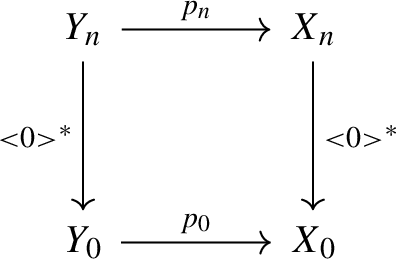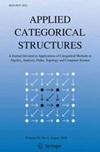简单空间的Yoneda引理
IF 0.5
4区 数学
Q3 MATHEMATICS
引用次数: 19
摘要
我们研究了任意简单空间的Yoneda引理。我们通过引入简单空间的左颤动,并研究它们的相关模型结构,协变模型结构来实现这一点。特别地,我们证明了任意简单空间上的协变等价的一个识别原理和协变模型结构相对于完全Segal空间等价的不变性。本文章由计算机程序翻译,如有差异,请以英文原文为准。

Yoneda Lemma for Simplicial Spaces
We study the Yoneda lemma for arbitrary simplicial spaces. We do that by introducing left fibrations of simplicial spaces and studying their associated model structure, the covariant model structure. In particular, we prove a recognition principle for covariant equivalences over an arbitrary simplicial space and invariance of the covariant model structure with respect to complete Segal space equivalences.
求助全文
通过发布文献求助,成功后即可免费获取论文全文。
去求助
来源期刊
CiteScore
1.30
自引率
16.70%
发文量
29
审稿时长
>12 weeks
期刊介绍:
Applied Categorical Structures focuses on applications of results, techniques and ideas from category theory to mathematics, physics and computer science. These include the study of topological and algebraic categories, representation theory, algebraic geometry, homological and homotopical algebra, derived and triangulated categories, categorification of (geometric) invariants, categorical investigations in mathematical physics, higher category theory and applications, categorical investigations in functional analysis, in continuous order theory and in theoretical computer science. In addition, the journal also follows the development of emerging fields in which the application of categorical methods proves to be relevant.
Applied Categorical Structures publishes both carefully refereed research papers and survey papers. It promotes communication and increases the dissemination of new results and ideas among mathematicians and computer scientists who use categorical methods in their research.

 求助内容:
求助内容: 应助结果提醒方式:
应助结果提醒方式:


